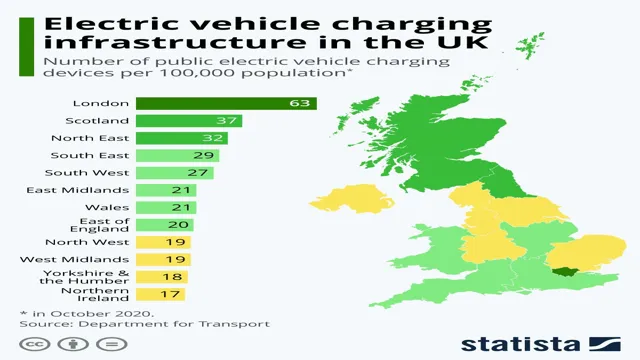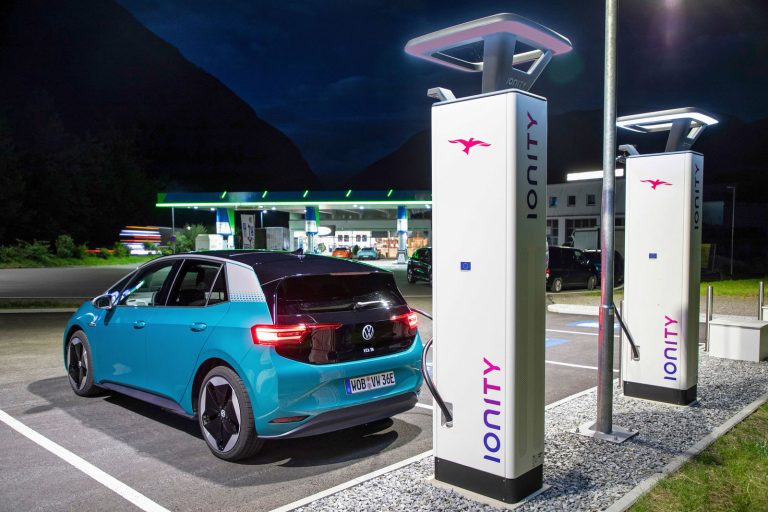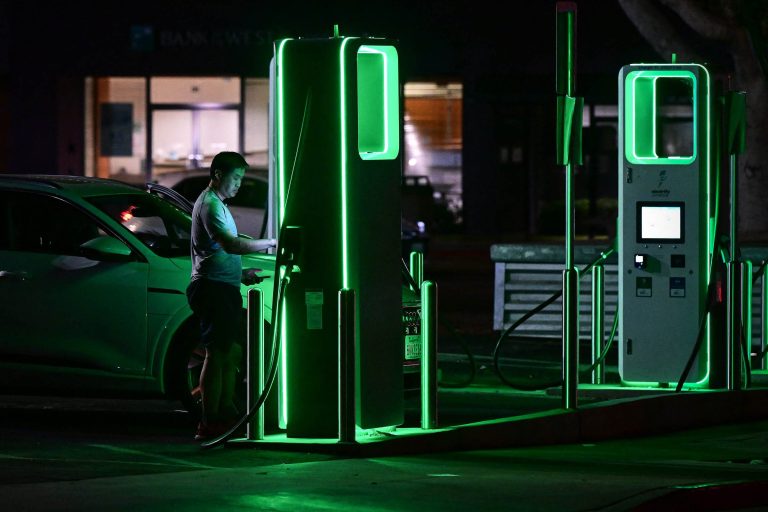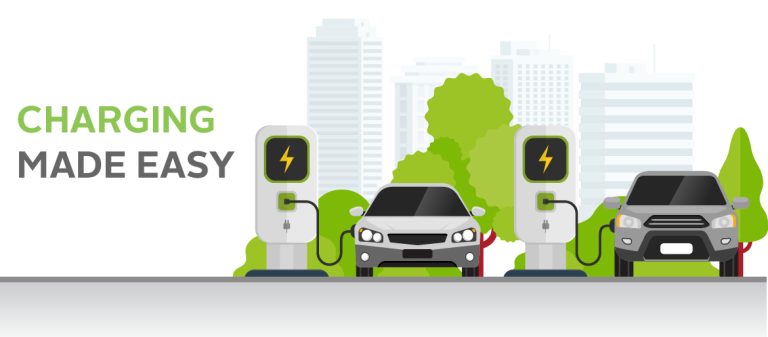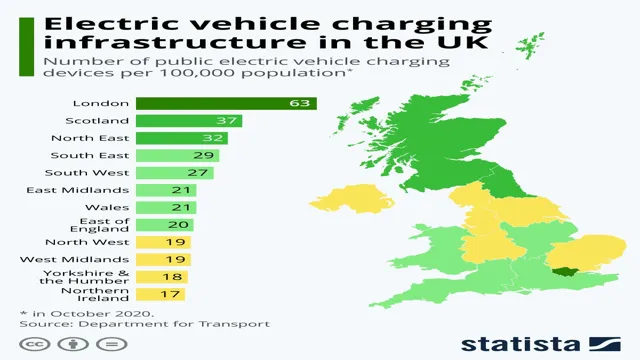Powering Up: The Future of Electric Car Charging Infrastructure in the UK
As more and more people consider making the switch to an electric car, a question on many minds is the state of charging infrastructure in the UK. Is it reliable? Will it be convenient enough for day-to-day use? The good news is that the UK has made significant progress in recent years towards building out a robust charging network. From motorway service stations to shopping centres and car parks, more and more charging points are popping up all over the country.
That being said, there is still room for improvement. Charging points are not yet as ubiquitous as petrol stations, and there can be issues with accessibility and reliability in some areas. Still, as more and more people make the switch to electric cars and demand for charging infrastructure increases, it’s likely that the situation will continue to improve.
One of the keys to building a more reliable and convenient charging network will be investing in fast-charging technology. This will allow electric car drivers to top up their batteries more quickly and easily, making long journeys more feasible. Additionally, there may need to be incentives for businesses to install charging points, especially in rural areas where the cost of installation may be higher.
Overall, the state of electric car charging infrastructure in the UK is promising, but there is still work to be done. As technology improves and demand for electric cars increases, we can expect to see more and more charging points popping up around the country. For now, though, electric car drivers should plan their trips carefully and be prepared for the occasional inconvenience.
Introduction
Electric car charging infrastructure in the UK is rapidly growing to meet the increasing demand for sustainable transport. With the government’s goal to ban the sale of new petrol and diesel cars by 2030, there’s a pressing need to expand the electric car charging network across the country. Currently, there are over 30,000 charge points in the UK, including public charging stations, workplace chargers, and home chargers.
Also, high-power chargers are being installed along popular routes to cater for long-distance journeys. Infrastructure expansion will enable more people to switch to electric cars, and this will significantly reduce the country’s carbon footprint. The installation of fast public charging points in urban areas is a crucial step in building confidence in electric cars, and it’s encouraging to see that local authorities and private businesses are cooperating to create clean towns and cities.
Explaining the Growth and Potential of Electric Cars in the UK
Electric Cars in the UK Electric cars, also known as battery electric vehicles (BEV), are becoming increasingly popular in the UK as more people look for cleaner, greener, and more fuel-efficient modes of transportation. With the government’s commitment to achieving net-zero emissions by 2050, the demand for electric cars is expected to grow rapidly in the coming years. In fact, sales of electric vehicles in the UK increased by 185% in 2020, and it is estimated that by 2030, electric cars will make up around 60% of new car sales.
The popularity of electric cars can be attributed to their low running costs, zero tailpipe emissions, and the availability of government grants and incentives for owners. With companies like Tesla, Nissan, and BMW leading the way in electric car production, the potential for electric cars in the UK is huge and will undoubtedly continue to grow as more people become aware of their many benefits.
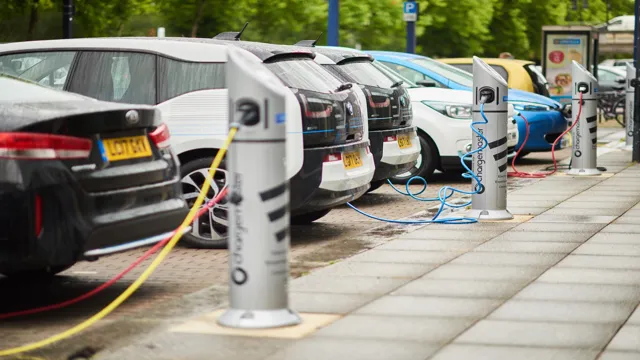
Importance of Charging Infrastructure for Electric Cars
As the world shifts away from traditional gas-powered vehicles, the importance of charging infrastructure for electric cars cannot be overstated. Unlike a gas station, which can be found on virtually every corner, charging stations for electric vehicles are still relatively sparse in many areas. This can make it difficult for electric vehicle owners to travel long distances without worrying about their car’s battery running out of charge.
Additionally, a lack of charging infrastructure can deter people from even purchasing an electric car in the first place. This is where the keyword “charging infrastructure” plays a crucial role – without it, the adoption of electric vehicles may be hindered, preventing us from reaching our goals of a more sustainable future.
Current Scenario of Electric Car Charging Infrastructure in the UK
Currently, the UK’s electric car charging infrastructure is expanding rapidly in order to keep up with the rapidly growing demand for electric vehicles across the country. There are now more than 30,000 public charging points spread across more than 11,000 locations, with more being added every day. However, the reliability and availability of charging points can still vary between different regions.
For example, some rural areas may have fewer charging points available compared to urban areas where there is greater demand. Nevertheless, the UK government has committed to investing more than £3 billion in the development of electric vehicle charging infrastructure in the coming years, with a target of at least 6 high-power charging stations situated every 20 miles on the country’s motorway and major A-road network by 202
This investment will help boost the confidence of drivers and encourage more people to switch to electric vehicles in the near future, making our roads cleaner and quieter.
Statistics and Data on Current Charging Stations in the UK
Electric Car Charging Stations in the UK The UK has seen an impressive rise in the number of electric car charging stations. As of June 2021, there were over 24,500 charging connectors in the UK, spread over approximately 15,500 charging stations. This number has doubled over the past three years.
A combination of government and private investment has been instrumental in establishing the vast infrastructure for electric car charging. Various public, commercial, and residential charging options are available, providing convenient access to EV drivers across the country. About 70% of charging stations are slow charging stations, while the remaining 30% are rapid charging stations that provide concentrated EV charging in a shorter amount of time.
Although the rising popularity of electric cars has boosted the number of charging stations, some areas still do not have sufficient coverage. The government aims to put in 6,000 more charging stations by the end of 2021 to ensure that more areas have sufficient charging infrastructure coverage.
Discussion on Challenges Faced by UK’s Charging Infrastructure
The popularity of electric vehicles (EVs) is increasing rapidly, but the UK’s charging infrastructure is struggling to keep up with the demand. Currently, there are approximately 25,000 public charging points across the UK, but many of these are outdated or in low-traffic areas. This lack of charging infrastructure is one of the biggest obstacles to widespread EV adoption.
EV drivers often face long queues at charging stations, and there have been reports of people parking their petrol vehicles in EV bays. Additionally, the inconsistent pricing policies and confusing payment systems make it difficult for drivers to understand the actual cost of charging their vehicle. In order to encourage more people to switch to EVs, there needs to be significant investment in charging infrastructure, both in terms of quantity and quality.
Analysis of How Other Countries Managed Their Infrastructure Issues
The current scenario of electric car charging infrastructure in the UK is one that is rapidly expanding but still has room for improvement. Unlike some other countries that have quickly adopted electric vehicle technology and invested in charging networks, the UK has taken a more gradual approach. That being said, the number of electric vehicle charging points in the UK has already surpassed 20,000, and the government has set aside funding to install even more.
But while the quantity of charging points is important, so too is their accessibility and reliability. Some areas in the UK have an abundance of charging stations, while others are severely lacking, making long distance travel in an electric vehicle challenging. Additionally, there have been instances of unreliable charging stations and compatibility issues with certain types of vehicles.
Despite these challenges, the UK is making progress in improving its charging infrastructure and with continued investment and innovation, it is poised to become a leader in electric vehicle adoption.
The Future of Electric Car Charging Infrastructure in the UK
Electric car charging infrastructure in the UK is rapidly expanding, with the government aiming for all cars to be electric by 2030. The charging network currently consists of over 35,000 charging points and is expected to reach 100,000 by 202 The majority of charging points are located in major cities and towns, but efforts are being made to improve infrastructure in rural areas.
It is expected that more people will switch to electric vehicles, leading to an increase in demand for reliable and fast charging options. As a result, the government is investing £500 million to support the development of charging infrastructure and is also offering grants for individuals and businesses to install charging points. In the future, we can expect to see more innovative solutions such as wireless charging and battery-swapping stations to further improve the charging experience for electric car drivers.
Overall, the future of electric car charging infrastructure in the UK looks promising, but there is still work to be done to ensure a convenient and accessible charging network for all.
The UK Government’s Plans for Increasing Charging Stations
The UK government has unveiled a bold plan to increase the number of electric vehicle (EV) charging stations across the country, as part of its effort to reduce carbon emissions and promote sustainable transportation. Dubbed the “Road to Zero” strategy, this ambitious plan aims to have at least half of all newly sold cars in the UK be ultra-low emission by 2030. To achieve this goal, the government plans to invest millions of pounds into expanding the EV charging infrastructure, with the aim of having as many charging stations as petrol stations by 203
This is a massive undertaking that will require significant investment, but it’s a vital step in the transition to a greener, more sustainable future. By making it easier for drivers to charge their EVs on the go, we can encourage more people to make the switch to electric and contribute to a cleaner, healthier planet. So, let’s look forward to a future where charging your car is just as easy as filling up with petrol!
Innovative Technologies That Can Change the Future of Charging Infrastructure
The future of electric vehicle (EV) charging infrastructure in the UK is looking bright, with innovative technologies shaping the way we charge our cars. One of the most exciting developments is the emergence of wireless (or inductive) charging, which allows EVs to be charged without the need for cables or plugs. This fast-charging technology relies on an electromagnetic field to transfer energy wirelessly to the EV.
This technology is still in its infancy, but it has the potential to revolutionize the way we charge our cars, making charging more efficient and convenient than ever before. Another exciting technology is bidirectional charging, which allows EVs to not only be charged from the grid but also to discharge energy back to the grid, effectively turning the car into a mobile power station. This technology could help to balance the grid, support renewable energy integration, and even enable EV owners to earn money from their cars.
These technologies, along with others like ultra-fast charging and vehicle-to-vehicle (V2V) communication, are set to transform the way we think about electric vehicle charging infrastructure and help accelerate the transition to a greener, more sustainable transport system.
Conclusion
In conclusion, the United Kingdom is charging towards a bright future with its rapidly expanding electric car charging infrastructure. With an increasing number of charging stations and diverse range of charging options available, electric car owners can confidently hit the road without worrying about running out of juice. Whether you’re looking to charge up on the go or at home, the UK’s charging infrastructure is powering the way to a cleaner, greener and more sustainable transportation future.
So why wait? Jump on board and plug into the wave of electric car charging infrastructure in the UK – it’s electrifying!”
FAQs
What is the current state of electric car charging infrastructure in the UK?
The UK currently has over 28,000 public charging points, with the government planning to increase this to 75,000 by 2030.
How long does it take to charge an electric car in the UK?
The time it takes to charge an electric car in the UK can vary depending on the charging speed and the vehicle’s battery size. It can take anywhere from 30 minutes to several hours.
Do I need a special adapter to charge my electric car in the UK?
It depends on the charging point you are using and your vehicle’s type of charging port. Some charging points may require specific adapters, which can be purchased online or at the charging site.
Will electric car charging infrastructure be accessible to all UK residents?
The UK government aims to ensure that electric car charging infrastructure is accessible to all UK residents, including those living in rural or low-income areas. This will be achieved through increased investment and initiatives such as the On-Street Residential Chargepoint Scheme.
